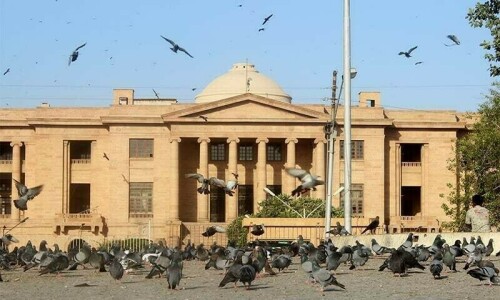ISLAMABAD: The Asian Development Bank has approved technical assistance to help the Punjab government develop a plan to revitalise and build resilience in the Ravi river basin.
At the moment, the river basin is heavily polluted with urban, industrial and agricultural waste — which can lead to major human, health, food and water safety risks.
The approval came in response to a request of the provincial government. Pollution in the river has been a known problem since 1995, yet past clean-up efforts rarely moved beyond the conceptual stage.
The river is biologically dead, lacking dissolved oxygen along much of its reach downstream of Lahore, according to a report by the Punjab government. Major pollution sources include household wastewater, industrial effluent, agricultural runoff and solid waste.
A report by the World Wide Fund for Nature Pakistan assessed the situation near Lahore, mapping major urban drains and industrial discharges and concluded that Ravi is Punjab’s most polluted river.
Two national water sector strategies between 2002 and 2012 highlighted the need to clean up the river and included investment proposals but these have not materialised.
A government-endorsed wastewater treatment feasibility study prepared with financial support from the Japan International Cooperation Agency in 2009 recommended a $413 million investment, while a similar study by a French consultant in 2011 recommended a $118m investment. Neither project went ahead.
In 2012, the Lahore High Court ordered the establishment of the Ravi River Commission to help clean the river. The commission reviewed the situation and prepared a report recommending a low-cost bioremediation plant costing $500,000 in Lahore as the first step. Soon after, however, the Lahore Development Authority proposed a $3 billion waterfront urban development project for the river that could preclude the treatment plant and pose further environmental risks. These organisations have been debating the issue in court and progress has stalled.
Pointing out that these risks will continue to worsen without urgent action by the government and society, ADB approved the technical assistance to support activities to assess the pollution problem, identify and close institutional gaps, raise awareness, and develop a long-term plan to revitalise and build resilience in the basin, with detailed investment recommendations.
The river which provides critical ecosystem services that support the provincial economy is one of the six trans-boundary rivers of the Indus River system. The river’s previously rich biodiversity hosted at least 31 fish species, among other wildlife, that offered livelihoods for Punjab’s rural poor. Its partial flow through the Lahore Canal also has recreational and cultural value to city’s residents.
Ravi River merges into Chenab River and then the Indus, which flows to the Arabian Sea. About 50m people live in the basin within Pakistan. This includes 24m urban dwellers in Punjab’s major cities of Lahore and Faisalabad, and in about 70 other urban areas. The basin experiences huge flow variations, ranging from 10 cubic meters per second in the dry season to 10,000 cubic meters per second in the wet season.
According to the ADB, despite its economic value, the river basin has become heavily polluted since the 1990s. Punjab’s cities, industries, and agricultural areas have developed without effective infrastructure to control, capture, and treat their discharges of polluted water, and without effective policies and regulations in place to reduce the pollution at source.
Experts agreed that pollution has been creating major health, environmental, food, and water safety risks that hurt the province’s economy and worsen its poverty.
Published in Dawn, January 12th, 2018













































Dear visitor, the comments section is undergoing an overhaul and will return soon.